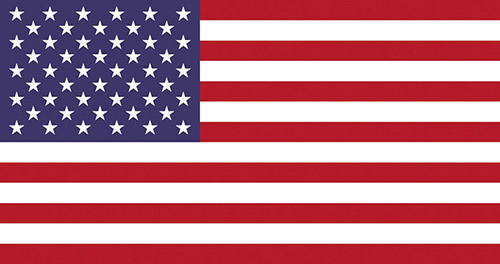
I have had the privilege of spending a lot of time with people from New Jersey’s various Jewish communities. During these visits and discussions with Jewish leaders, I am frequently asked for my perspectives and opinions of Israeli leaders and policies. This is especially the case since the recent Israeli elections, and the contentious debate within Israel on various domestic issues and policies.
It goes without saying that our country’s relationship with Israel is very special. Yes, our two countries are close partners and friends. But the relationship is really much deeper than that. This is made perfectly clear by our Department of State, which says on its website that we “are united by our shared commitment to democracy and economic prosperity,” and “the United States is firmly committed to Israel’s security.”
The very unique bond between our two nations extends to many things, foremost among them economic trade and international affairs. Indeed, since Israel’s founding in 1948, the United States has always maintained its commitment to Israel’s economy and sovereignty, with the two countries working together to counteract any and all regional threats.

Without question, the United States will never sacrifice its special bond with Israel.
Does all that, however, give our politicians license to opine and/or comment on Israel’s domestic issues? The ongoing controversy on egalitarian prayer at the Western Wall provides, I believe, a compelling example of a strictly domestic Israeli affair that warrants no outside interference whatsoever, even from representatives of Israel’s closest ally.
Some background already known to most Jews: In 2016, to address hostilities at the Western Wall, the Israeli government approved the creation of an “egalitarian” prayer space where men and women could pray together. While some Jewish leaders around the world praised this policy, not everyone agreed. Many Jews, including members of the Israeli government, were strongly opposed to, in the words of the Israeli prime minister, “the creative solution.” In 2017, under continued pressure, the Israeli government reversed itself and withdrew the policy, which sparked a counter revolt.
To this day, the controversy continues to rage. Indeed, only days ago, the Israeli government, as reported by The Times of Israel, said it was “expediting a bill to impose sweeping new restrictions on freedom of worship at the Western Wall, banning egalitarian, mixed-gender prayer at the section of the holy site where it is now allowed, criminalizing the activity of the Women of the Wall prayer rights group, and banning visitors from wearing attire deemed immodest.”
As a fan of all things Israel, I have followed this debate with interest. But let me be clear, it is absolutely not my place to publicly comment on any course of action.
Anyone is entitled to have an opinion on this controversy and the newly proposed restrictions. And private Jewish citizens of the United States, who are stakeholders in the matter, would certainly be expected to opine and advocate. I firmly believe, however, that politicians here in the United States should keep their opinions private. Pure and simple, the Western Wall controversy is a domestic Israeli issue, and not the business of any foreign country or its elected representatives, whose interference may very well complicate matters all the more.
Would we like it if Israel’s prime minister got involved in how we, here in the United States, should deal with our social justice challenges?
The role of New Jersey’s governor, or any elected official, including the president, is to support the State of Israel economically and militarily, as we should with allies all around the world.
That is why, for example, New Jersey’s governor and legislature, including yours truly, enacted laws mandating that state public pension funds divest ownership of companies that engage in Boycott, Divestment and Sanctions (i.e., BDS), a movement designed to undermine, destabilize and delegitimize Israel as a sovereign nation.
We must take bold and decisive action when and where we are supposed to, all the while leaving domestic Israeli issues to the democratically elected Israeli government and citizens.
Here in the United States, and especially in New Jersey, we’ve got our fair share of challenges requiring urgent attention. And so, when it comes to domestic issues, things would be better served here at home and in Israel if we direct our energies to our own challenges.
Jack Ciattarelli, the 2021 Republican nominee for New Jersey governor and a likely 2025 gubernatorial candidate, is a contributor to the opinion pages of The Jewish Link. Ciattarelli is a life-long New Jersey resident and married father of four adult children; a certified public accountant (inactive); and a two-time successful entrepreneur who owned and operated successful medical publishing companies based in New Jersey. He has previously held elected office at the municipal, county and legislative levels.













